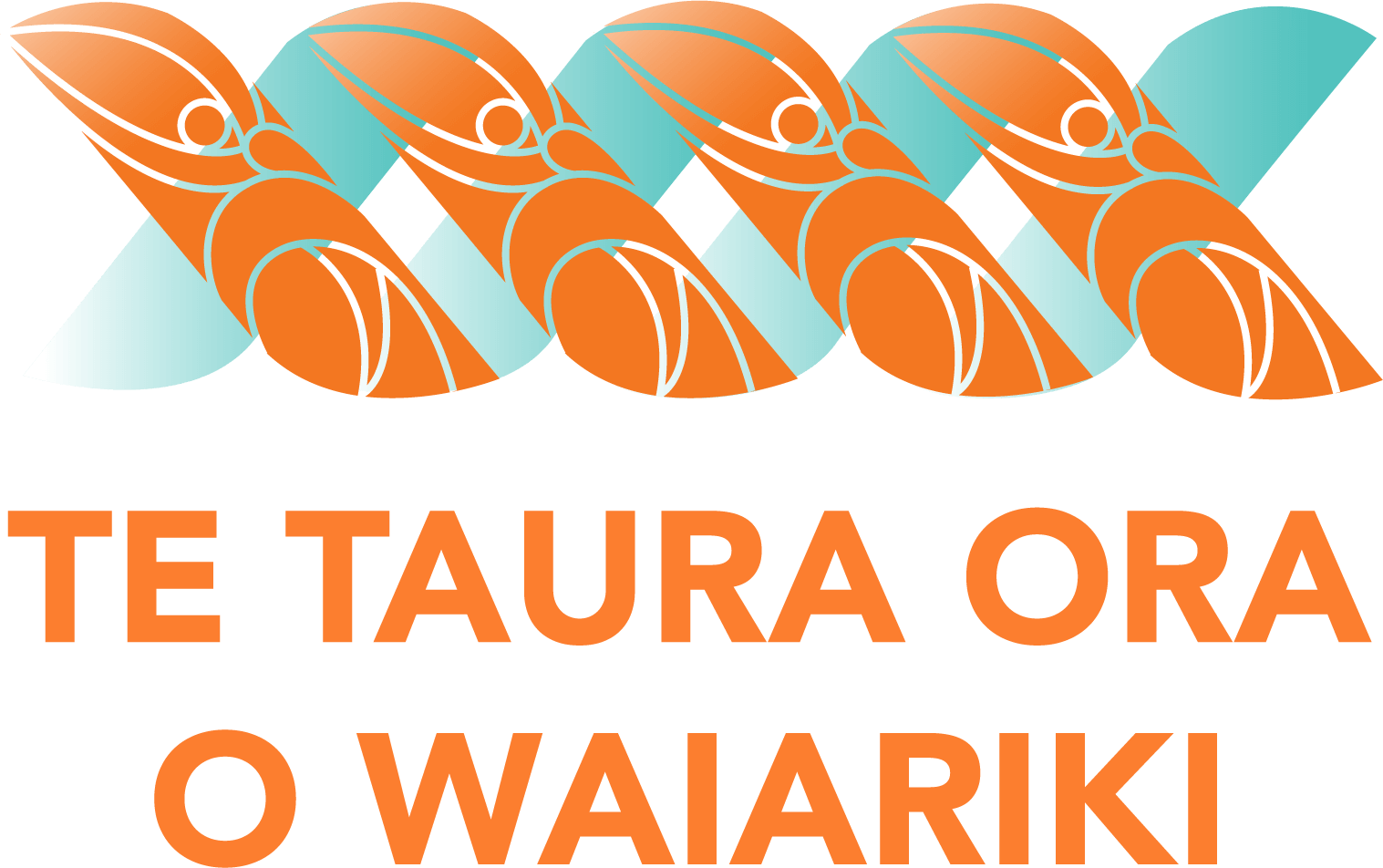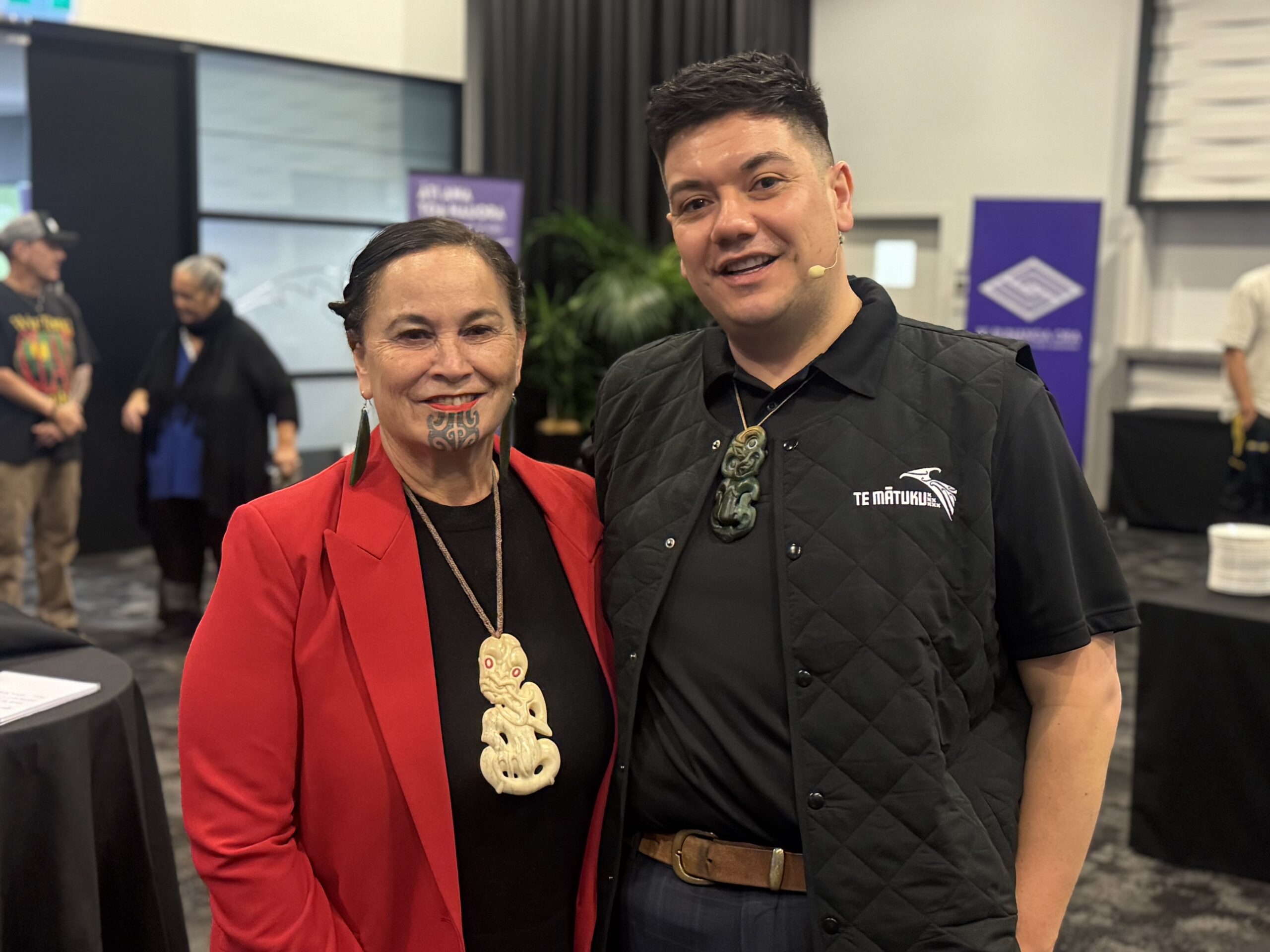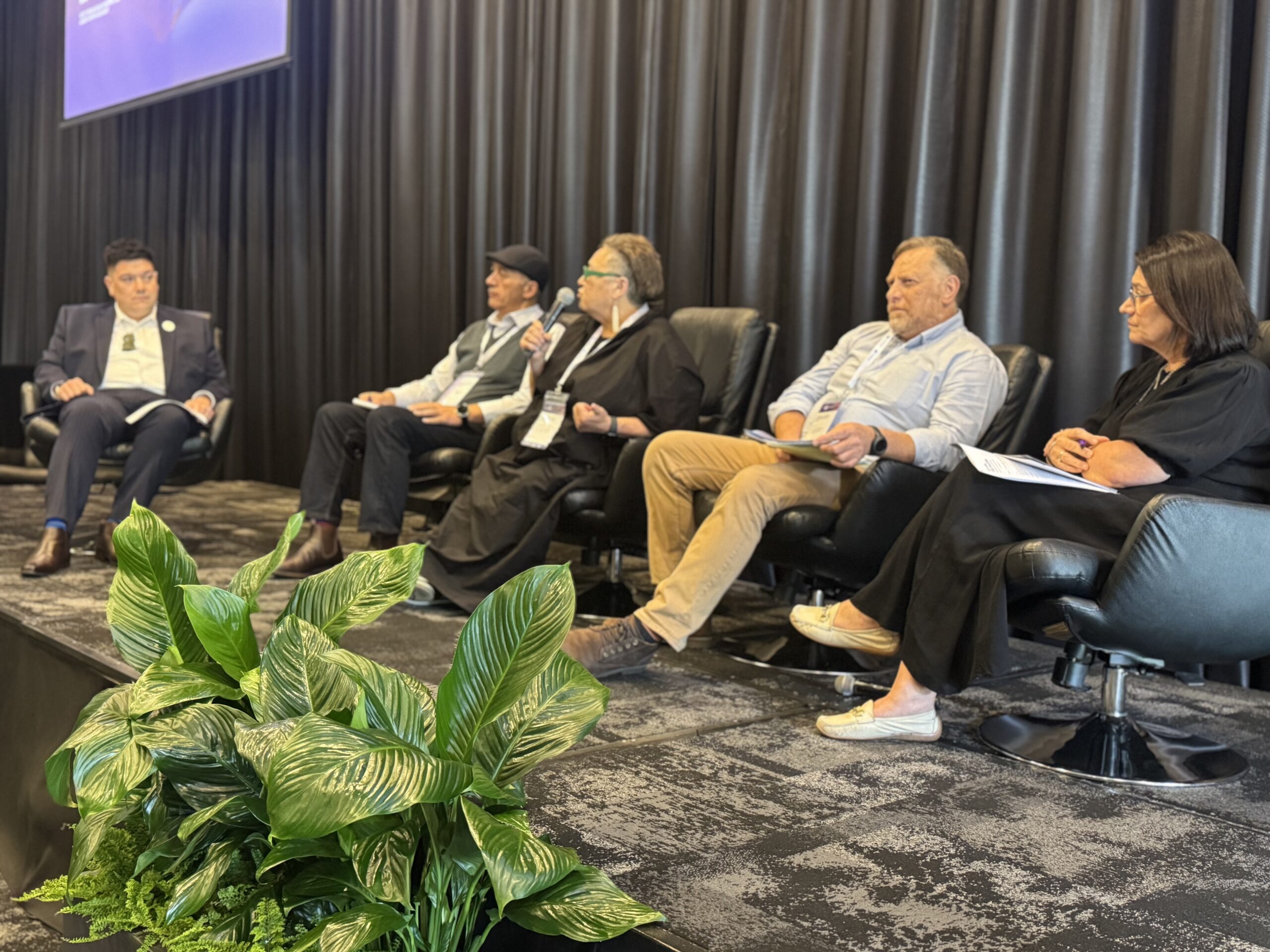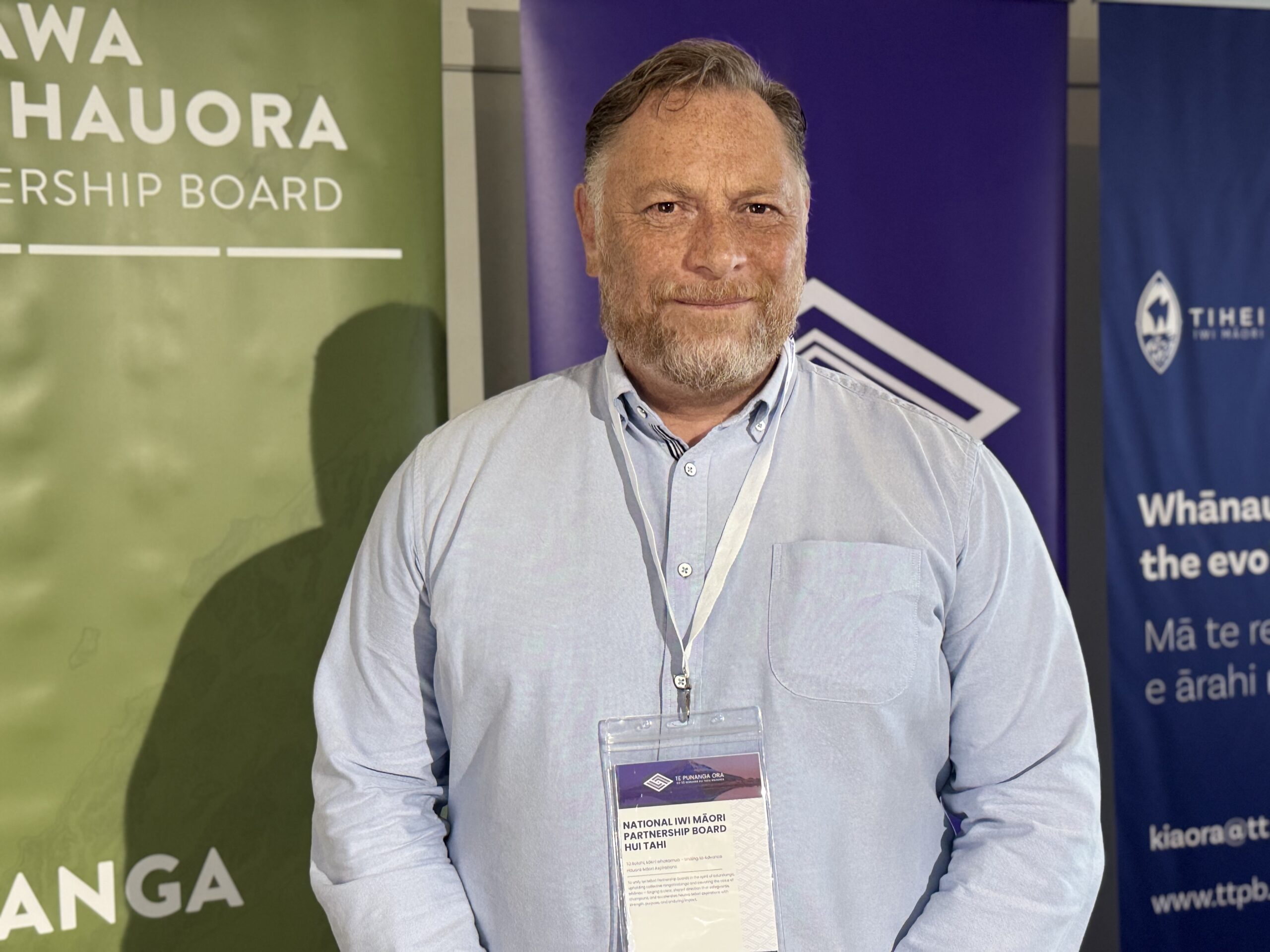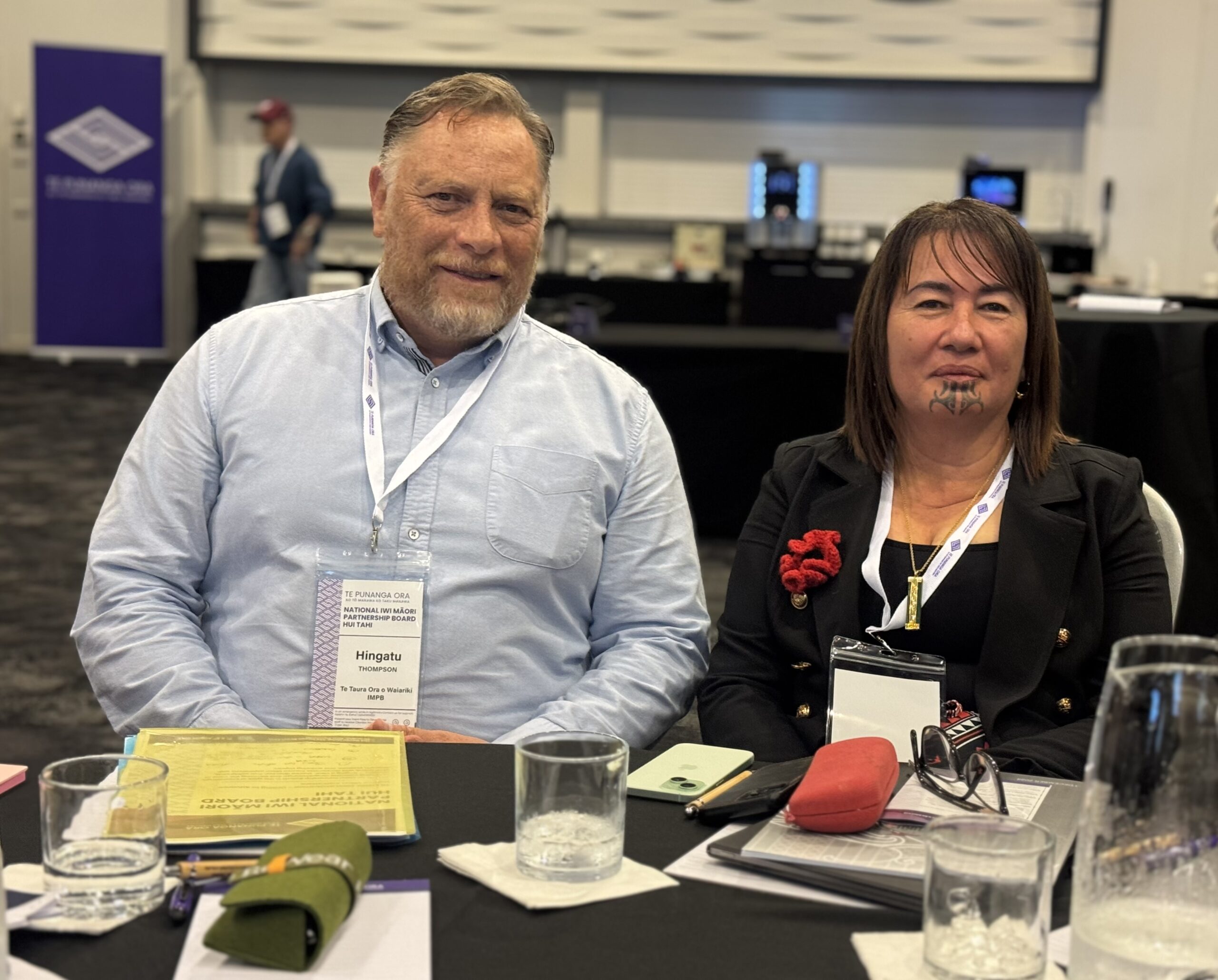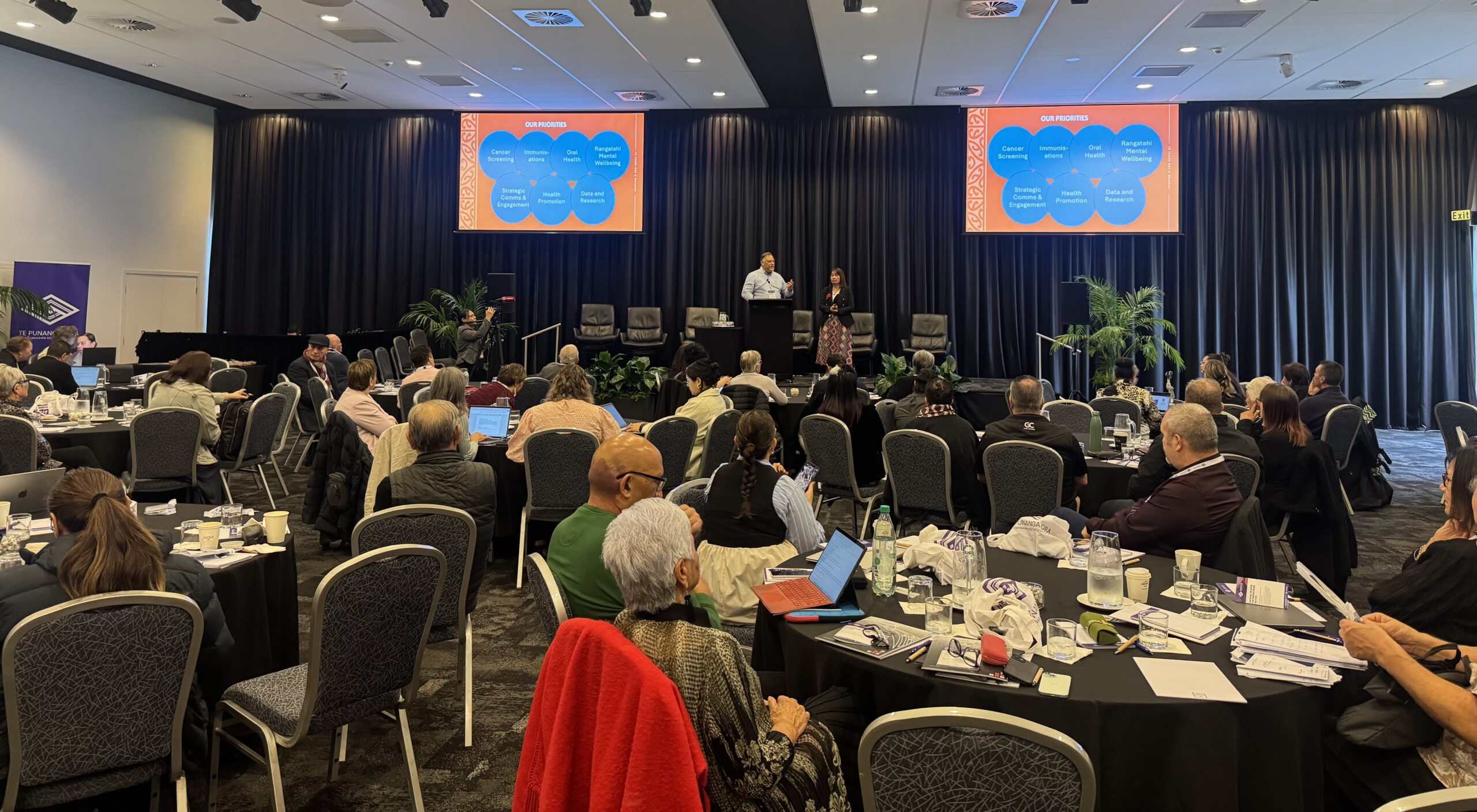Te Taura Ora o Waiariki, the Iwi Māori Partnership Board (IMPB) has just returned from a landmark national hui in New Plymouth, where 15 Iwi Māori Partnership Boards united to oppose government plans that threaten to silence Māori voices and weaken decades of hard-won health partnerships guaranteed under Te Tiriti o Waitangi.
“What we’ve learned is the public health system is actually not doing really well for our people, and we have known this for many years,” said Te Taura Ora Chair, Hingatu Thompson.
The first monitoring report released by Te Taura Ora o Waiariki IMPB revealed critical gaps in prevention and access for Māori in Te Arawa, highlighting low cancer screening rates and the country’s lowest child immunisation coverage, underscoring the urgent need for greater investment in Māori-led health solutions.
“What was encouraging with the original Pae Ora Act was that mana returned to Te Arawa to take control, to analyse data ourselves with our Whānau Voice surveying that gathers our own information from whānau our rohe to influence priorities.”
“However, now the government’s proposed changes in the Pae Ora Bill threaten to remove iwi’s meaningful participation and advice on the future of hauora for our people.”
Thompson said Te Arawa has maintained strong hauora partnerships across successive governments and will continue to do so. However, the proposed legislation risks sidelining iwi voices by channelling feedback primarily through the Minister-appointed Hauora Māori Advisory Committee (HMAC) which lacks representation from Waiariki, instead of empowering locally appointed Iwi Māori Partnership Boards to engage directly at regional and community levels, where real, meaningful change occurs.
“As Iwi Māori Partnership Boards, we have unique regional and local priorities and accountability to our whānau at home. We must work directly with Te Whatu Ora Health New Zealand at these levels to influence how services are delivered, who delivers them, and ultimately to achieve better outcomes for Māori in our rohe. The government’s talk of ‘streamlining’ feels like a convenient way to reduce Māori engagement,” Thompson said.
Te Taura Ora o Waiariki IMPB strongly supports:
- Retaining and clarifying the accountability of HMAC to iwi Māori through IMPBs.
- Strengthening IMPB roles to provide regional and local advice to Te Whatu Ora Health New Zealand.
- Developing new health strategies with specific actions to improve Māori health outcomes.
- Opposing any amendments to the Pae Ora Act that weaken or replace the principles of Te Tiriti o Waitangi.
“The government’s own analysis shows these changes will have minimal positive impact on Māori health outcomes, yet they risk diminishing Māori involvement. We firmly believe that continuing and enhancing the current partnership model will lead to genuine improvements and reduced inequities.”
“While that national hui is only the beginning of a national conversation, common themes are emerging, iwi and IMPBs do not support these proposed changes and question their necessity.”
“We are committed to working together nationally to form a single, strong voice, but improving life expectancy, child immunisation rates, accessibility to health delivery services locally and regionally is where we need to make the ultimate progress.”
Each IMPB, including Te Taura Ora o Waiariki, will submit their own detailed submission to the Health Committee on the proposed legislation by 18 August. Thompson intends to present in person to the select committee on behalf of whānau in Waiariki.
Media Liaison: Sarah Sparks
Email: Sarah.sparks@sparksconsulting.co.nz
Mobile: 021318813
See the photo gallery below for a snapshot of the conference.
